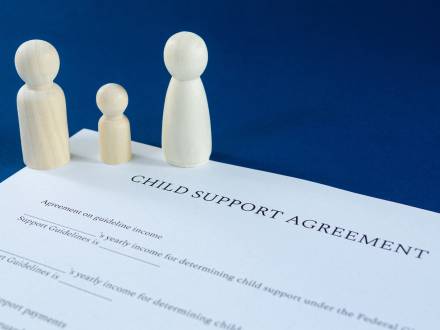Does My Ex Keep Paying Child Support if They Have Another Child?
 In Illinois, a new baby or stepchild can affect a parent’s finances, but it does not automatically cancel or reduce child support obligations. Courts look closely at both parents’ incomes, family size, and the needs of each child before deciding if payments should change. If you are unsure what this means for you, the Joliet, IL child support lawyers at The Foray Hurst Firm can help you understand your rights.
In Illinois, a new baby or stepchild can affect a parent’s finances, but it does not automatically cancel or reduce child support obligations. Courts look closely at both parents’ incomes, family size, and the needs of each child before deciding if payments should change. If you are unsure what this means for you, the Joliet, IL child support lawyers at The Foray Hurst Firm can help you understand your rights.
How Do Illinois Courts Calculate Child Support?
Under Illinois’s income-shares model (750 ILCS 5/505), the court uses both your incomes to figure out how much support should be paid. The point is to estimate what your child would have received if you were all living together. The court divides the total of your income by how much you each make to figure out your financial responsibility. For example, if your ex earns 70 percent of the total income, they are typically responsible for 70 percent of your child’s financial support.
If your ex believes the current child support order is no longer fair, they can file a petition to modify child support. This lets the court review whether a "substantial change in circumstances" has occurred. If the judge agrees, the payment amount may be increased or reduced based on each spouse’s current income and expenses.
Does Having a Child Count as a Substantial Change in Circumstances in Illinois?
Having another child can sometimes qualify as a substantial change in circumstances under 750 ILCS 5/510, but it depends on the situation. Illinois law does not automatically lower child support just because a parent chooses to grow their family. The court looks at whether the new child has actually changed the parent’s financial situation enough to make the original support order unfair.
When deciding if a change is justified, judges also review other factors, including:
-
Whether the parent’s income has changed significantly since the last order
-
If the new child depends on that parent for financial support
-
How the new obligation affects the parent’s ability to pay existing support
-
Whether the parent voluntarily chose to take on new expenses
-
If the current amount still meets the needs of the first child
In short, the birth of a new child may lead the court to adjust child support, but it will not erase the existing duty to provide for the first child. Each case is different, and the court’s main goal is to make sure every child receives fair and adequate support.
What Can You Do if Your Ex Stops Paying Child Support in Illinois?
Until the court officially approves the change, your ex must continue following the existing order. If they stop paying without a court order, you still have legal options. Illinois courts can order wage garnishment, driver’s license suspension, and even take tax refunds. In serious cases, a parent can face jail time for ignoring a court order.
You can also contact the Illinois Department of Healthcare and Family Services (HFS). This agency helps parents collect unpaid child support. Keep detailed records of missed payments and any messages from your ex. This evidence can help if you need to go back to court.
Contact an Orland Park, IL Child Support Attorney Today
When your ex’s family situation changes, you may need legal action to protect your child’s financial stability. At The Foray Hurst Firm, we focus on preserving the dignity of families in transition by guiding parents through every stage of child support and custody matters. Our attorneys are proud members of the Black Women Lawyers’ Association, the Black Bar Association of Will County, the Cook County Bar Association, and the National Bar Association. Every membership reflects our commitment to excellence in family law.
Call 312-702-1293 to contact our experienced Joliet, IL child support lawyers today for a consultation.








